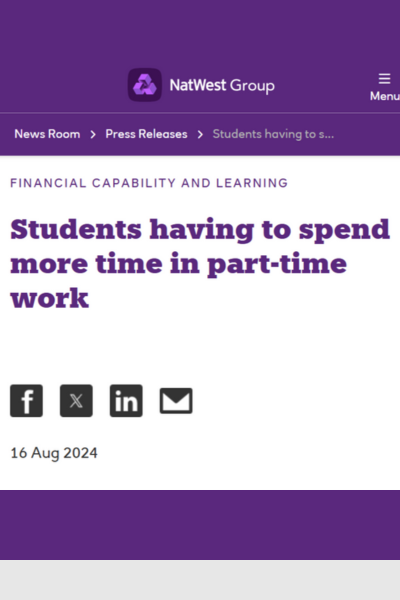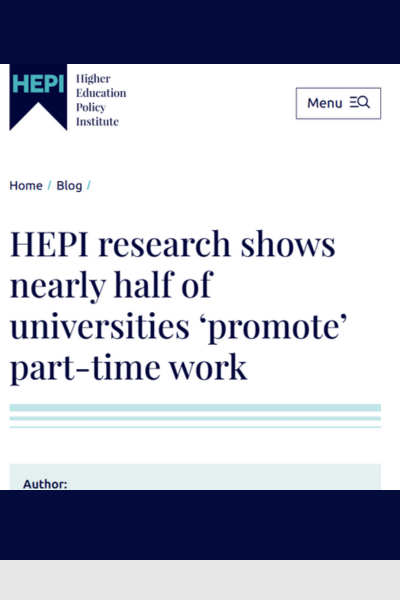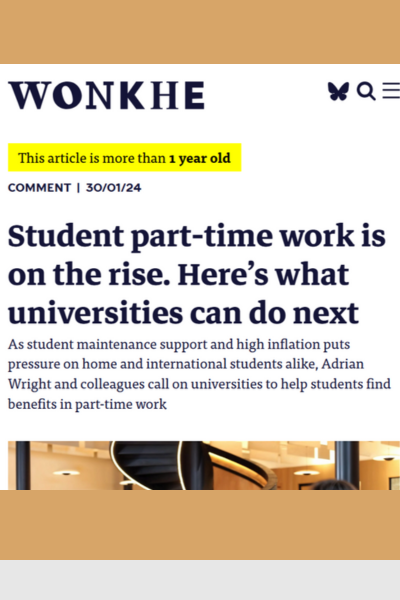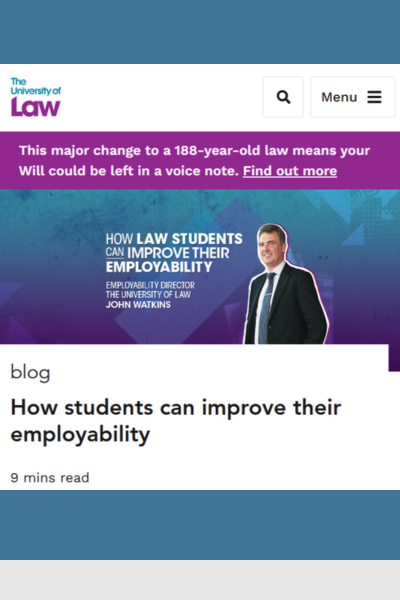Students take on part-time work for a range of reasons; one key reason is the need to boost their finances. The maintenance loan offered by Student Finance England is rarely enough to cover student living costs, but this has worsened in recent years due to errors in forecasting inflation. To afford basic amenities such as accommodation, bills, food and a reasonable social life, students have had to turn to part-time working.
Time spent by students in part-time work has increased by 154%.
However, earning more money is not the only reason students are taking on part-time work.
The perception that earning a degree is not enough to get a ‘good’ job is growing and part-time work during their studies offers students the opportunity to gain real-world experience, network and build practical skills. It allows them to build their CV alongside their studies, giving them more experience to draw upon in future interviews.
All of this affects our students’ time at UoP and adds to their concerns about their future, post-university. Working alongside their studies can increase stress, leave them less time to socialise and enjoy themselves and mean they lack the flexibility they need to complete their studies.

Websites




University of Portsmouth: Part-Time Jobs Guide
Helping students balance work with their studies by offering practical advice on finding and applying for part-time roles in Portsmouth. Covering common job types available, tips for a successful job search, how to avoid scams and key information specifically for international students.
Universities UK: Do we need to rethink student tuition and maintenance loans?
Experts discuss the issues with student maintenance loans and why they are no longer sufficient to support students' lives.
NatWest: Students having to spend more time in part-time work
This recent article provides accessible statistics on students taking on paid work. It also discusses the rising living costs and helps to explain the need for the average student to work 46.3 hours per month.
HEPI research shows nearly half of universities ‘promote’ part-time work
HEPI research shows that many universities now accept or even encourage part-time work for students to cope with the cost-of-living crisis, providing job listings and on-campus opportunities, but warns that excessive hours can negatively affect study quality, particularly for low-income students.


WonkHE: Student part-time work is on the rise. Here’s what universities can do next.
Many students now rely on part-time work to support living and study costs, highlighting the need for universities to help make these jobs more relevant, manageable and career-enhancing.
University of Law: How students can improve their employability
The University’s employability team advises students to develop teamwork, adaptability, IT and AI skills, seek diverse work experiences and embrace feedback to succeed in the workplace.
